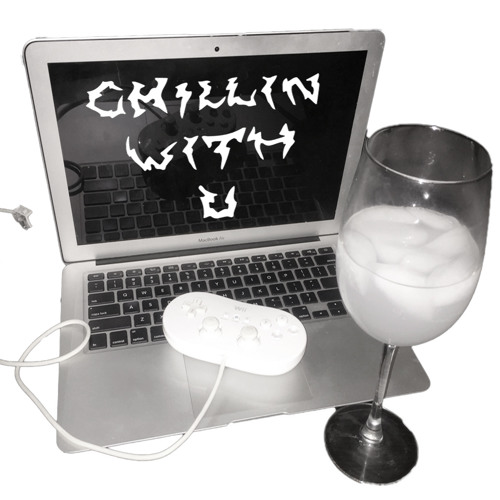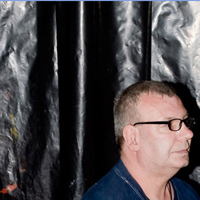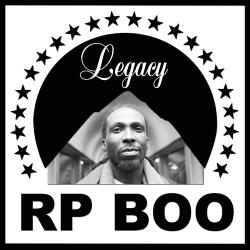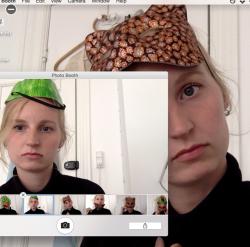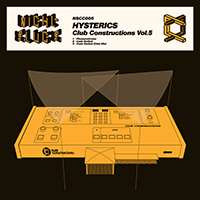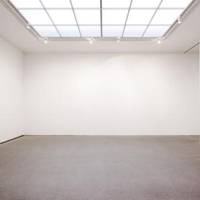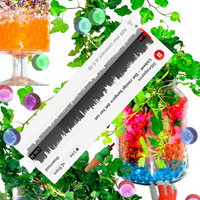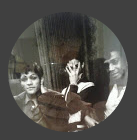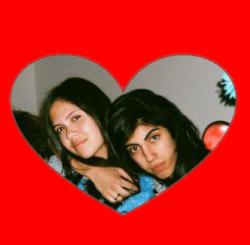Saved to your collection: navigating SoundCloud’s subculture
Navigating the social music platform SoundCloud, scores of electronic music producers define their subjectivities with the self-referential motifs of emergent subcultures. In the late 1970s, French economist and writer Jacques Attali critiqued what he saw as the oppressive nature of the mass-produced record industry, claiming that consumers were driven to stockpile more records than they had the time to listen to.
His 1977 book Noise: The Political Economy of Music argued that the music industry of the day was an undemocratic, top-down representation of the “monologue of institutions”. Specifically, Attali’s critique was indicative of a particular left wing anti-consumerist sentiment of the time, reacting to the dominance of Fordist-Keynesian capitalism and its largely American government-driven system of rationalized mass-production and mass-consumption.
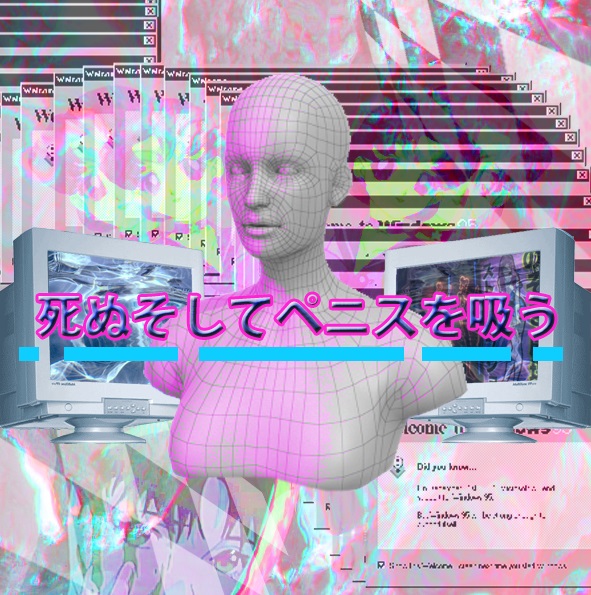
Nice shit by Vomut
Moving forward into the present day, social web music services such as SoundCloud appear to a tee as the liberating new model that Attali predicted as this totalizing model’s replacement. One in which the listener becomes the musician – the consumer becomes the producer. Interestingly, phrases used by Attali in Noise such as his call for “a permanent affirmation of the right to be different” and “the right to compose one’s life” sound very much like the rhetoric all too often employed by social web businesses in emphasizing the voice of the individual (for SoundCloud it is an invitation to “Be heard everywhere”). It is with this hindsight that we might start to consider how the promise of a potentially decentralized and democratic musi-topia as hoped for by Attali, became rather the neoliberal blurring of leisure and labor that is Web 2.0 music making.
Around the time of Attali’s Noise, the do-it-yourself (DIY) punk movement — fueled like the French left by a general disillusionment with capitalist consumerism as well as the increased technological ease with which music could be produced and distributed — began a protest against corporate-driven musical taste making. This movement was encapsulated by the call-to-arms: “It was easy, it was cheap – go and do it!” If we consider the nature of DIY in the present however, we are faced with something that is by no means radical. ‘Doing It Yourself’ is the dominant paradigm of today’s Internet ‘prosumers’ and the music industry of the day seeks not always to impose a spectacle of corporate-defined tastes on a passive audience. Rather, it turns a mirror towards this audience with its online platforms and asks users to share. Taken at face value, on services such as SoundCloud there are no professional musicians, no hobbyists and no passive consumers. There are only level playing-field users participating with varied tactics. This is the neoliberal decentralization of the old capitalism’s ‘music industry’.
Music critic Adam Harper draws connections between the punk movement and the contemporary online music underground, one of which being the ease of participation. As he has noted, the bedroom producer of the day needs no musical background, even less so than the punks did. They can use free software to become actively involved in various different subcultures. For instance the genre nightcore, a kind of musical détournement defined by the simple gesture of raising the pitch of a pop song, making it sound kawaii. Typically, nightcore edits are produced from polished sounding pieces of upbeat dance-pop or eurodance, often posted online alongside found imagery, with artists regularly adopting stills from anime films. The subculture began when a Norwegian duo began releasing tracks under the artist name ‘Nightcore’. Their early 2000s speed edits of dance tracks were followed by many other bedroom producers posting their own ‘nightcore’ edits online.

Manicure Records
After growing within online communities over the last decade, nightcore is enjoying a global moment of popularity with the rising trend of kawaii aesthetics in underground music (PC Music, Manicure Records’, JACK댄스 ) along with vaporwave. Subcultures such as nightcore and vaporwave take the simplifying of musical production — articulated initially in the 1970s DIY movement by the mantra “This is a chord, this is another, this is a third, now form a band” — to new digitally assisted extremes.
Whatever the intentions of the artists who have found the tools of the social web useful, the freedom to “make noise” (in Attali’s words) of one’s own has made 12 hours of music be uploaded to SoundCloud every minute. This is indicative of a number of changes to consumption over the last few decades. While Attali’s rhetoric echoes a disillusionment expressed by French post-structuralist philosophers with mass culture’s normalizing qualities, this desire for individualism is one part of an equation that has led to a revolution of user-generated labor. Alongside this cultural disillusionment, capitalism was in a global state of economic recession in the mid-1970s, with rising unemployment and increasing inflation (a result of the crisis of capital accumulation within a failing Fordist system). This, together with the political threats of communist and socialist parties gaining traction across Europe and a growing sense of public dissatisfaction, led to radical political and economic changes in order to ensure capitalism’s dominance; changes that we discuss in the present as neoliberalism.

GitS2: Innocence ft. Post-Structuralist Philosopher Donna Haraway
The neoliberal project saw an emphasis on market freedom from government regulation, a winding back of union power and the security of waged workers (ushering in increasingly casual and precarious employment) alongside a competitiveness that places a particular value on innovative entrepreneurialism and subsequently knowledge as well as service based work. The Internet’s capabilities for distribution of knowledge and information, increasing flexibility by way of the facilitation of freelance work, as well as its providing users opportunities to satisfy their cultured desires for active participation and creative expression, have made the burgeoning digital economy a crucial part of the neoliberal restructuring of society. Culturally, a shift towards neoliberalism (away from the totalizing aesthetic of high Modernism which went hand-in-hand with regulated, big picture postwar Fordism) was accompanied by an emphasis in art and culture on difference, individualism and an embrace of fashion. For consumers, a condition of neoliberalism is a fostering of individualism and a want for one’s voice to be heard, to be a producer. This is a condition that has popularized the participatory music making of the social web. Consumer-led music making, with its initial radical sentiment in the DIY ethos and subsequent forecasting of a now ubiquitous model of consumption, makes for a perfect discussion point of the paradoxical notion of ‘freedom’ in the present day political economy.
While the winding back of Fordist-Keynesian economics was a supposed solution for a crisis of capital accumulation, as Marxist geographer David Harvey has observed, neoliberal economic policy has a particularly poor record in aiding economic growth. Further, despite an overarching political rhetoric of freedom, social inequality grows and increasingly impenetrable and massive tech corporations monopolize the innovation of a new knowledge and information-based economy. This reflects what Harvey argues critically is neoliberalism’s largest achievement: reinstating class power for a small global elite. The world we have arrived at is far from one of the small egalitarian cooperatives that some free market optimists hoped for in neoliberal decentralization and tech-utopians hoped for in the early days of the Web. It is also not one where supposedly democratized music making is free from corporate interests and control. Google’s acquisition of YouTube, expanding the platform from its beginnings in sharing user-generated video content towards including partnerships with large media corporations, is a good example of this. One could also consider the fact that Apple’s new music streaming service seems to be incorporating an aspect of social web consumption.

Twooctave Wireless Keyboard for Apple
Apple Music’s Connect platform opens up lines of communication from artists to fans in order to post messages, videos and other content. These examples give an indication that SoundCloud may either be squeezed out by new competing platforms or eventually bought out by a larger company (Twitter was already considering an acquisition of SoundCloud in 2014). On social music platforms like SoundCloud, DIY music making is now not so much an interruption within capitalism of cultural normalization, but rather a mainstream means of consumption as well as often an act of unpaid labor. The notion of ‘doing-it-yourself’ becomes a subcultural stopgap for the necessarily continuous consumer demand that the corporate-driven tastemaking of the old music industry could never have upheld.
Music, held in such high esteem by Attali for its forecasting of political-economic changes in society, was once again at the vanguard of consumption in bringing notions of consumers-as-producers to the mainstream with the late 1970s punk movement. The DIY-urge expressed by music practitioners in the face of corporate sameness did not however actualize a means in which to create a musical economy outside of capitalism as some had hoped. Instead, it became a means for reforming consumption within a hierarchical capitalism that continues, albeit in an evolved form, today. The desires of those disillusioned with corporate normalization, their wants for difference, individualism and freedom of creative expression have been adopted wholesale in the participatory consumption of Web 2.0 platforms; where new subcultures abound amongst streams of favorites and reposts on SoundCloud. On social music platforms we see a push for users to present their ever-updating creative subjectivities; this is not too much unlike the old model of more passive consumption and its push to purchase new, ever-updating products. No matter how accessible use of the social web’s tools may become, ownership of the underlying infrastructure of these platforms sits not in the hands of its users, but in the hands of companies whose interests lie in extracting value from users’ productivity. As a company SoundCloud is perhaps still closer to its startup origins than the massive tech corporations alluded to earlier. However as SoundCloud begins the introduction of new subscription services and advertising, juggling its artist-focused roots with major record labels, we can perhaps speculate how it may evolve to serve the interests of the latter. While the increasing ease of digital music production and the tools of the social web have given birth to new subcultures, this contemporary DIY freedom is coupled with our changing relationship to music listening and participation, as creative expression becomes more and more a way in which we are expected to participate as consumers.


